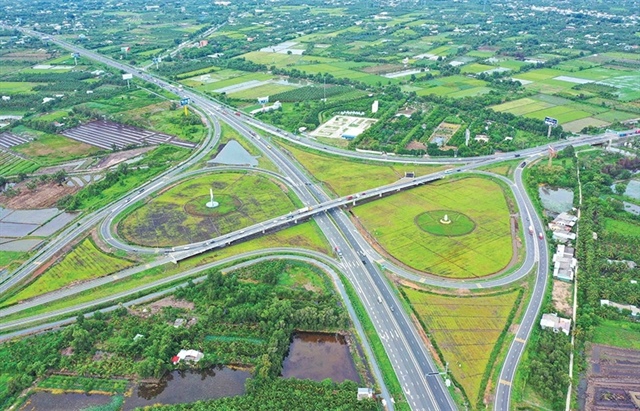HCM City – an ideal destination for Japanese investors
HCM City – an ideal destination for Japanese investors
With 800 projects worth US$2.7 billion, Japan is the 6th biggest foreign investor in Ho Chi Minh City. The figure is expected to rise in the future because HCM City is considered an ideal destination for Japanese investors.
Over the past 16 years, the Toyota Tsusho Corporation, which supports auto manufacturers in Vietnam, has operated smoothly and plans to continue investment expansion in Ho Chi Minh City.
Hiroyuki Shio, Deputy CEO of Toyota Tsusho Corporation Vietnam and chief of the Ho Chi Minh City branch, said, “Ho Chi Minh City’s authorities have created favorable conditions for our investment, operations, sales, and administrative activities. Regular dialogues between municipal leaders and businesses have been held to remove obstacles.”
According to the Japan External Trade Organization (JETRO) in HCM City, Japan’s major investment areas are property, processing, manufacturing, science, and technology.
Recently a delegation from the Japan Business Federation, Keidanren, came to Ho Chi Minh City to explore the local investment and business environment.
Keidanren Senior Managing Director Mukuta Satochi noted, “later this year, the Trans-Pacific Partnership agreement will be signed, the ASEAN Economic Community will be formed, and Vietnam, and Ho Chi Minh City in particular, will become increasingly important as a business venue in the strategic global supply chain. Japanese enterprises are showing interest in processing, manufacturing, garments and textiles, construction, transportation, and high-tech agriculture.”
To attract more FDI, administrative reforms have been stepped up. Now it takes only three days to register a business and 15 days to register as an investor.
The city’s tax sector has pledged to shorten the mean time required for duty declaration to 171 hours by the end of this year from the current 200 hours. The city administration regularly meets foreign investors to provide timely help with their problems.
But foreign investors remain frustrated by Vietnam’s inadequate legal system, infrastructure, and support industry.
Le Thi Huynh Mai, deputy director of the city’s Department of Planning and Investment, said that the agency“will publicize administrative procedures on our website as a step toward reforming investment procedures and creating breakthroughs in the Investment Law. We’ll increase consultancy, introductions for investors, and online licensing.”
To exploit free trade agreements and attract more foreign investment, especially from Japan, Ho Chi Minh City’s leaders are committed to investing more in infrastructure and listening to enterprises’ opinions in addition to the ongoing administrative renovation.




















